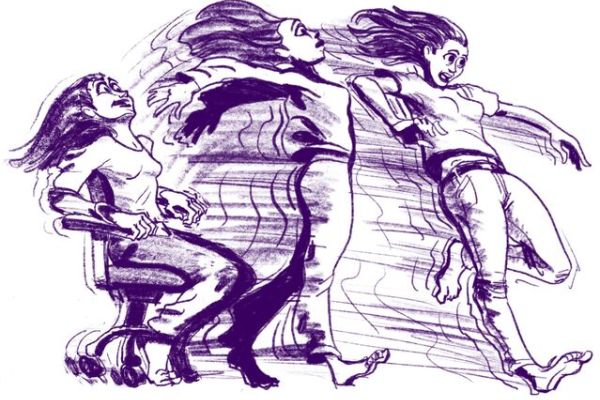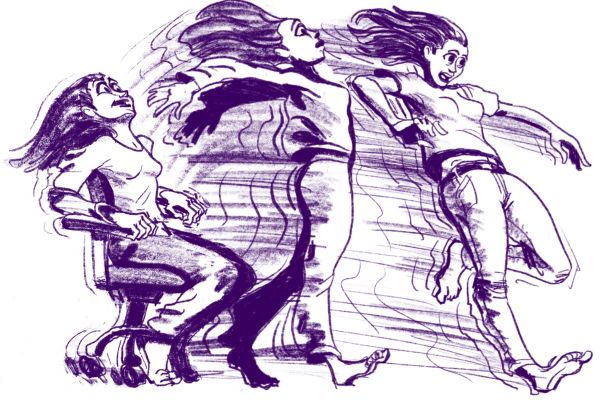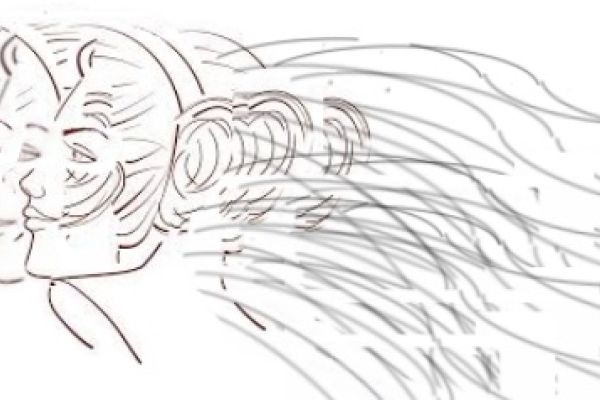
Tachysensia
How can 20 minutes fly by when you’re catching up with a friend, but feel incredibly slow if you’re waiting in line? It all comes down to perception. The seconds measured by a clock and the time felt in someone’s body are often completely different. In the rare condition known as tachysensia, a person experiences a temporary distortion of time and sound, during which they get the “fast feeling” that everything is moving more rapidly than it actually is.

A “fast-feeling” episode of tachysensia may last anywhere from two to 20 minutes. During this time, body movements seem to speed up anywhere from 1.5 to 3 times their normal pace, creating that trademark “fast feeling.” Sounds may also be amplified, often to a physically painful degree.
People with tachysensia experience episodes where everything appears to be speeding up, and sounds become unusually loud. These episodes are short in duration, usually lasting no more than 10 minutes, and unpredictable in nature, making them difficult to study. They are known by many names, including quick-motion phenomenon, the rushes, rapid spells, and fast feeling.
Tachysensia is frequently associated with “Alice in Wonderland Syndrome” (AIWS), a rare neurological disorder which also involves distortions in time and sound perception. The exact cause of this condition remains unknown; however, tachysensia has been linked to changes in body temperature (e.g., fevers), migraines, PTSD, stress, fear, anxiety, awe, and silence.
An episode of tachysensia is like a hiccup in time. The “fast-feeling” sensation can be alarming, and the noise amplification can be painful at times, like when a soft fan suddenly sounds like a plane taking off. However, most tachysensia symptoms will not harm you. The main danger lies in how you react to an episode—getting anxious or upset will only exacerbate your symptoms, but paying more attention and being more mindful can help ease you through the episode.
Studying tachysensia can be tricky due to the brief and unpredictable nature of the “fast-feeling” episodes. But there is evidence for a significantly delayed response time in AIWS patients who claim to experience fast feeling, suggesting that tachysensia is indeed a verifiable condition.

A person’s experience of time is subjective. It depends on their unconscious interpretation of past events, as well as their circadian rhythms. While there is no way to slow down clock time, people do have the power to affect psychological time (i.e., their perception of time passing that can make the same duration feel either too slow or impossibly fast). Tachysensia episodes cannot be prevented completely, but time-stretching skills, mindfulness, and specific types of therapy, like CBT, can help mitigate their harmful effects.
Look for signs that your perception of time is distorted—your body movement feels off and too fast, the people around you speed up as if they’re a movie on fast-forward, etc. Be aware that sounds may also seem inexplicably faster and louder. If you notice these types of symptoms, and they pass after a short period (typically less than 30 minutes), then it’s likely you have just come out of a tachysensia episode.
If you have tachysensia infrequently and aren’t particularly upset by it, then don’t worry about it. But if you find your tachysensia symptoms concerning and disruptive to your daily life, you might want to seek out professional help. Be sure to check with your primary care doctor and a neurologist, if necessary, as that fast feeling may have medical roots that need to be addressed.
It may not be possible to make that fast feeling go away on command, but you can greatly decrease tachysensia by using the same kinds of techniques you might employ to stop an anxiety attack. For example, you could learn a breathing technique in advance, practice mindfulness, close your eyes, or distract yourself with a pleasant memory.





